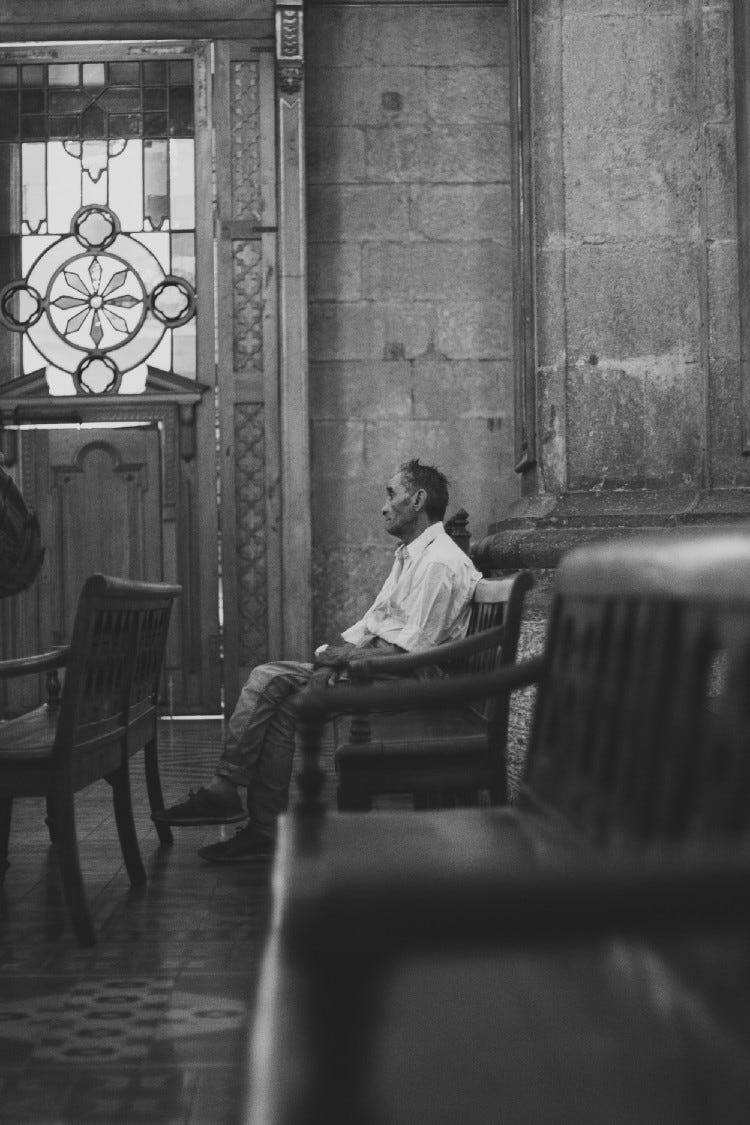
This is Part 1 of a series on anxiety and depression. I’m not a psychologist but I do spend a lot of time sorting through my own feelings, pulling them apart and seeing what gives them their juice. I hope these posts will be helpful to anyone who’s ever felt similarly to me for similar reasons.
This post is about some of the things that cause anxiety and depression. The next post will look more closely at what they’re made up of and what they feel like. And the posts after that will discuss some management techniques. I’m 100% convinced of some of my points, others are slightly more speculative, but all of them have helped me.
IMPORTANT: none of the posts will touch on the clinical versions of anxiety or depression; I’m not qualified to discuss either. I’m writing from the POV of someone who feels negative emotion relatively frequently and has had a couple of anxiety attacks, but I’m aware that many people feel anxious or depressed far more overwhelmingly and far more often, if not all the time.
I’m sick of back door emotions.
Tired of feeling depressed rather than angry. Tired of feeling anxious rather than afraid. Tired of feeling tired rather than much of anything else.
Properly handled, honest emotions come and go, passing through the body the way food and drink do, constantly replacing each other in cycles based on the day’s events and your natural rhythms. They respond to specific things you encounter in real time, and they don’t outstay their welcome. They exist in a state of flow.
Depression and anxiety are different in every way. They’re not life-affirming. They persist long past any reasonable emotion’s sell-by date. Rather than arising in response to your moment to moment experiences, they colour the experiences in advance like a dark filter over a camera lens. Rather than reflecting reality, they model themselves on inaccurate stories you’re subliminally telling yourself about reality. (The stories may have a persuasive grain of truth to them, but that doesn’t make them fundamentally truthful.) Rather than feeling concrete and specific, they feel nebulous, abstract, vague, confusing. They’re not obviously about anything.
This explains why it’s often so hard to know why you feel depressed or anxious. The problem is that all that nothingness — the absence of strong feeling, the absence of any clear reason why you’re out of sorts — is caused by too many somethings at once. You’re actually feeling lots of sadness, fear and anger — regret over the past, shame over the present, trepidation over the future, a sense that life’s just generally too difficult — all at the same time. Naturally enough, this overwhelms your emotional system and it shuts down in self-defence.
But for all the Medusa-like multiplicity of depression and anxiety, there’ll often be a primary trigger: something that happened or something someone said which you didn’t feel able to deal with at the time. Cue a flood of negative emotion, and — I’m not sure why this happens, but it does — a chain reaction along the lines of ‘And while I’m on the subject, here are all my other problems’. Of course thinking about your 99 other problems just makes the original problem seem that more insurmountable, and bingo, now you’re really depressed.
Because none of us can deal with 99 problems at once, it’s often helpful to sit down and do some detective work with depression: ‘OK, there may be any number of things wrong with my life, but they don’t make me feel like this all the time, which means they’re not the real problem here. What is? What started me down this path?’ Then you work your way back to what happened immediately before the sky fell in: ‘He said that, then I felt that, which tapped into that because I believe that, then it got mixed with that and that, and here I am two days later’.
How do you know when you’re getting warm? Because you finally start feeling jolts of actual primal emotion linked to actual specific realities — aha, that memory made me properly angry! Aha, thinking about this makes me feel sad — not vaguely panicky, just sad! Good! We’re getting somewhere!

Now I’m gonna go a little deeper into my own experience of this stuff. See if you can relate to any of it.
What have my self-investigations told me about the root of my depressions and anxieties? Most of the scripts are what you’d expect them to be: why am I such a bad person; why am I still such a bad person; remember all those opportunities I missed; life is passing me by; time is running out; why don’t I have x, y or z yet; I’m afraid of x, y and z; I can’t believe I’m still afraid of x, y and z; why can’t I stop being afraid of x, y and z. Sadness, anger, fear. My life sucks and it’s my fault.
But I’ve recently realised that one of the things I feel worst about in life is the stuff I’m good at. That may sound weird or arrogant, but it’s very straightforward — I’m always coming up with ideas for long, convoluted essays and long, complicated, densely arranged songs, but it’s a lot easier to have a complex idea than to execute it. A million things get in the way of my realising my ideas “properly”: perfectionism, self-doubt, lack of finances, lack of time, lack of energy, lack of technical knowhow, lack of the collaborators I want, dissatisfaction with the collaborators I have (plus a distaste for hassling them until they do things just so; I have standards but I don’t have the heart to be a total James Brown about it).
(Starting to see why I write these things anonymously yet?)
I’m not claiming to be special here: everyone has potential they don’t have the time or motivation to realise. Nor do I want to sound needlessly grim. I’m lucky to have the talented collaborators I do, I’ve written songs I’m happy with, I’m delighted to have the opportunity to publish here. But it’s in the nature of perfectionism to focus on the empty half of the glass — not just how your existing work could be improved, but how your whole life would be better if you fired off essays on all the cool stuff that came into your head and had an orchestra, gospel choir and world-class vocal coach on speed dial. And that’s before we even get to all those movie ideas.
Are these obscene thoughts for a comparatively fortunate Westerner to have? Yes. But strong emotions don’t have any sense of proportion. They’re childlike, and they want what they want. Shaming them for that is like screaming at your infant for not caring about Ethiopian debt relief — it’s unreasonable and just makes the child feel worse. Much nicer to speak soothingly to yourself: ‘I know x sucks, but y and z are pretty cool if you think about it. OK, you’re not in the mood to think about anything at the moment — forget it, what do you need from me today?’
The gap between the perfection of my ideas and the flaws in my execution, what I’m capable of on paper and what I’m able to squeeze into one lifetime, sometimes horrifies me. It’s guilt-inducing. It’s embittering. It’s overwhelming. And I sometimes wonder if my system finds it easier to collapse all of that negative emotion into depression (slow, soft) than to keep me at the constant high pitch of anxiety that my relentless inner critic, my Thou Shalt, demands (‘Come on! Do something!!!’).
The irony? When my inner critic relaxes the fog lifts. When the fog lifts I relax. When I’m relaxed, I get creative. And the creative feeling brings all the energy I need along with it. The critic keeps me from doing the very things it wants me to do.

So is having an overactive inner critic the root cause of all depression? No — it’s not even the cause of all of mine. But it’s a big part of my life, which is why it comforts me to believe that a lot of the mind’s worst aspects are the yin to a good thing’s yang, or the shadow of a good thing, or transmutable into a good thing, or a good thing taken to an extreme. Think you’re a bad person? Some part of you must be good to have such high moral standards. Overwhelmed by sadness and rage? That speaks to an intensity of feeling that can swing both ways, even if it skews negative more often than positive.
Having passions is a good thing. Having ideas is a good thing. The only thing I need to change is my approach to these things. It’s very difficult to find that equilibrium between ‘I’m worthwhile no matter what I do’ and ‘All the same, it’d be a shame to waste what I’ve been given, how can I work towards my goals bit by bit?’ But the balance exists, and it can be reached.
The strangest thing of all is that even in those exalted times when I’m firing on all cylinders — writing my best, singing my best, playing my best, pulsating with energy — I need to be careful not to second-guess myself. Part of me thinks ‘Imagine if I could be like this all the time. Think of all the time I’ve wasted being depressed and unmotivated’. (Warning: rabbit hole! Do not enter! This is exactly the kind of thinking that gets you depressed in the first place!)
And another part of me thinks ‘You know, this is fun, but it’s also kinda…manic? Being like this all the time, getting the best out of myself all the time, sounds like it would be kinda exhausting. Would my hobbies change? My personality? Maybe even my friends? Hmm, that sounds like a lot of change…’ (Also a rabbit hole! Get back to the songwriting!)
More speculation: is part of my depression reflex a sort of defence mechanism against “excessive” energy, intensity, alignment with my goals, and all the demands they might make of me?
I don’t know. But I do know I like this quote of Marianne Williamson’s (often misattributed to Nelson Mandela). The wording is slightly over-the-top— I wouldn’t have used the terms “beyond measure” or “fabulous” myself — but I think the core message is important. See how you get on with it.
Our deepest fear is not that we are inadequate. Our deepest fear is that we are powerful beyond measure. It is our light, not our darkness that most frightens us. We ask ourselves, ‘Who am I to be brilliant, gorgeous, talented, fabulous?’ Actually, who are you not to be? You are a child of God. Your playing small does not serve the world.
Warning to anyone else who suffers from an oversized superego: don’t take that last sentence as a cue to flagellate yourself for not “serving the world” enough. Just focus on how good it feels to be a child of God. Relax into it. Have fun with it. See where it takes you. And good luck.
Stay tuned for Part 2, where I go into more detail on what anxiety and depression feel like and what their component parts are.





My passions are also something that take me away from negative feelings but then I get into a spiral of worrying that I am simply using my passions to avoid confronting what is 'really' going on behind those negative feelings instead of accepting that that energy and productivity is good in and of itself.